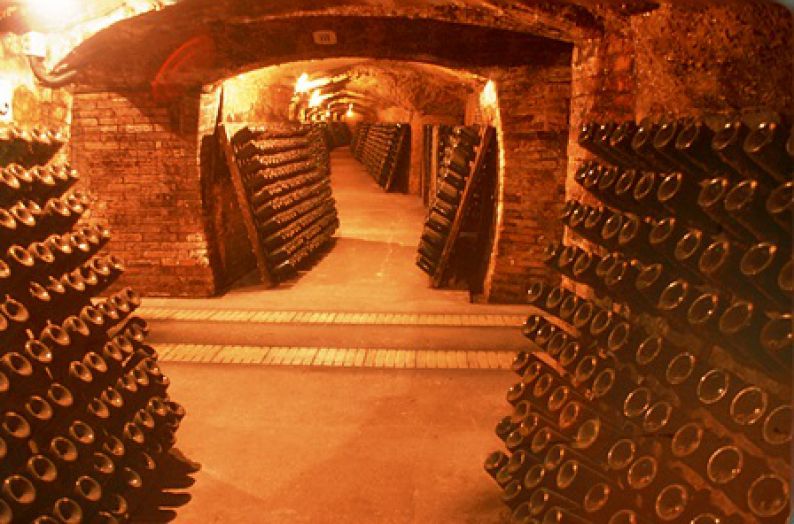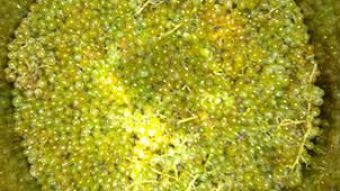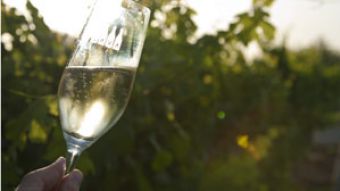Cava is setting out to obtain greater excellence
Cava is part of that elite set of the most exalted sparkling wines in the world and is arguably the one which represents the best value for money. The cava industry is 'cracking open' a new era with changes in all its institutions, determined to raise the bar of quality, enhance its image, and 'reap' higher levels of excellence and, of course, added value. As Martin Luther King said:, all labour that uplifts humanity has dignity and importance and should be undertaken with painstaking excellence.
Among the immediate challenges facing cava’s Consejo Regulador (Regulatory Board), the greatest would seem to be the determination to obtain the "Cava Calificado" classfication, a new category to distinguish the higher quality cavas, with stringent requirements and conditions. This is encompassed within the framework of the draft regulations for the "Denominaciones de Origen e Indicaciones Geográficas Protegidas' (Designation of Origin and Protected Geographical Indications), of supra-autonomic scope, which include the D.O.Cava and are currently being worked on by the Spanish Ministry of Agriculture, Food and the Environment. According to the president of the cava Consejo Regulador, Pere Bonet Ferrer, this classification is aimed at "obtaining justice and giving cava the place it deserves, because we have fantastic products." He is convinced that the new 'Cava Calificado' classification will serve as a stimulus to further elevate all fine cava production. The Consejo Regulador continues to push for strict controls. According to the Consejo, tight control ensures a quality reflected in the hallmark characteristics of each and every bottle, and is "the only guarantee for the consumer."
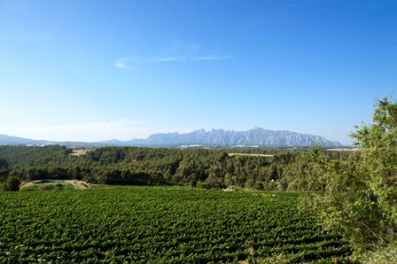 Bonet says that "we must strive for a better image, higher added value and unity within the cava industry." He adds that the prime objective is "to further enhance the image of cava, an excellent product with fine attributes which deserves a bright future." He goes on to say that with cava "we are playing at world-class level, and we must not forget that we have an excellent and complex product of outstanding quality and that there is a lot of talent within the industry." Bonet points out that cava is a "font of extraordinary work, the font of a creative, clean, skilled and sustainable economy, and an industry which benefits the local region." He also highlights the "great talent" of the growers and winemakers, and the contribution and potential of wine tourism. In fact, he has proposed setting up a committee to determine cava’s strategy for the next decade, investing in marketing and promotional support and even more "state-of-the-art wine growing and winemaking" in order to dig deeper in the quest for higher quality. He also says more influence is needed in order to shake up drinking habits because, although cava is considered essential at formal events and celebrations, it is also the perfect partner for any drinking occasion. According to Bonet, there is no other wine, including champagne, which offers such a diverse range and as much versatility to pair with food.
Bonet says that "we must strive for a better image, higher added value and unity within the cava industry." He adds that the prime objective is "to further enhance the image of cava, an excellent product with fine attributes which deserves a bright future." He goes on to say that with cava "we are playing at world-class level, and we must not forget that we have an excellent and complex product of outstanding quality and that there is a lot of talent within the industry." Bonet points out that cava is a "font of extraordinary work, the font of a creative, clean, skilled and sustainable economy, and an industry which benefits the local region." He also highlights the "great talent" of the growers and winemakers, and the contribution and potential of wine tourism. In fact, he has proposed setting up a committee to determine cava’s strategy for the next decade, investing in marketing and promotional support and even more "state-of-the-art wine growing and winemaking" in order to dig deeper in the quest for higher quality. He also says more influence is needed in order to shake up drinking habits because, although cava is considered essential at formal events and celebrations, it is also the perfect partner for any drinking occasion. According to Bonet, there is no other wine, including champagne, which offers such a diverse range and as much versatility to pair with food.
According to the Minister of Agriculture, Miguel Arias Cañete, "in international markets, it is fundamentally important to position cava in the price segment which reflects its premium quality," and he has announced that the Government will support promotional campaigns. He believes that "we must grow exports, but not sell cava as a cheap product." The Catalan government’s Minister of Agriculture, Josep Maria Pelegrí, points out the "unstoppable" substitution of champagne by cava in the market place, and states that "anyone trying our cavas for the first time will see how good and inexpensive they are, and that our product offers excellent value for money, the result of the good work within the cava industry"
Over 240 companies produce 250 million bottles
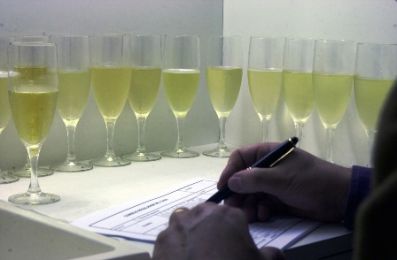 Over 240 companies produce around 250 million bottles of cava, of which over 160 million are exported to the four corners of the globe. It is Spain's biggest wine export, as well as the world's most exported sparkling wine. The internationalization of cava has been spectacular in recent years. Cava production also ensures the preservation of the traditional vineyard landscape in Penedès where the cultivation of the vine, imported by the Phoenicians and the Greeks, dates back to the fourth century A.C. The influence of the sun and the Mediterranean Sea makes Penedès a unique location, a haven for the cultivation of the vine. According to the latest data available at 31 December, 2013, the D.O.Cava surface area totals 33,006 hectares of vineyards, employing 6,365 wine growers. The Consejo Regulador puts cava's success down to the expertise of the winegrowers and the talent of the winemakers, along with the vision of some traditional, mainly family-owned, brands. The white native varieties of Penedès are by far and away the most widely grown. These varieties are the most adapted and best express the DNA of the multi-faceted Penedès region which boasts a diversity of unique soils and altitudes. With 11,513 hectares, Macabeo is the most planted grape variety, followed by Xarel.lo (8,292 hectares) and Parellada (6,993 hectares). More recently, the Xarel·lo and Chardonnay white varieties are the ones being the most planted.
Over 240 companies produce around 250 million bottles of cava, of which over 160 million are exported to the four corners of the globe. It is Spain's biggest wine export, as well as the world's most exported sparkling wine. The internationalization of cava has been spectacular in recent years. Cava production also ensures the preservation of the traditional vineyard landscape in Penedès where the cultivation of the vine, imported by the Phoenicians and the Greeks, dates back to the fourth century A.C. The influence of the sun and the Mediterranean Sea makes Penedès a unique location, a haven for the cultivation of the vine. According to the latest data available at 31 December, 2013, the D.O.Cava surface area totals 33,006 hectares of vineyards, employing 6,365 wine growers. The Consejo Regulador puts cava's success down to the expertise of the winegrowers and the talent of the winemakers, along with the vision of some traditional, mainly family-owned, brands. The white native varieties of Penedès are by far and away the most widely grown. These varieties are the most adapted and best express the DNA of the multi-faceted Penedès region which boasts a diversity of unique soils and altitudes. With 11,513 hectares, Macabeo is the most planted grape variety, followed by Xarel.lo (8,292 hectares) and Parellada (6,993 hectares). More recently, the Xarel·lo and Chardonnay white varieties are the ones being the most planted.
Pere Llopart i Llopart, the technical director at Llopart, believes that offering and promoting very exclusive products is a very good thing, "Long ageing, meticulous winemaking and above all, extensive work in the vineyards aimed at finding optimal balance with minimal intervention, carried out in the most natural, environmentally-friendly way possible, yet always guaranteeing the highest quality." Llopart also believes that "today we have made good progress and are standing ready, with state-of-the-art tools and techniques, but we must not forget that it is essential to preserve our origins in order not to lose our identity." The technical director at Freixenet, Josep Bujan, says the industry is increasingly investing in the development of premium quality products, "the proof is that today important opinion leaders do not hesitate to compare long-aged cavas to the best champagnes." Bujan points out that "this does not mean that cavas produced in larger quantities have not improved too. Careful work in the vineyards and above all throughout the winemaking process has raised the quality bar significantly." As for R&D, Freixenet’s technical director believes that "things have really moved forward in the winemaking arena in recent years," adding that "today they even visit us from the Champagne region to see the progress being made in the cava industry, when it always used to be the other way round." Bujan believes that winemaking has been "our unresolved matter" until now. Antoni Cantos i Llopart, the Juve & Camps winemaker and president of the Catalan association of oenologists (Associació Catalana d’Enòlegs), believes that "there have always been cases in the cava industry, such as Juve & Camps, of those who have gone for quality and excellence." He also considers that "R&D work, both in the vineyards and in the winery, is being increasingly reflected in the greater presence of these products in the market."
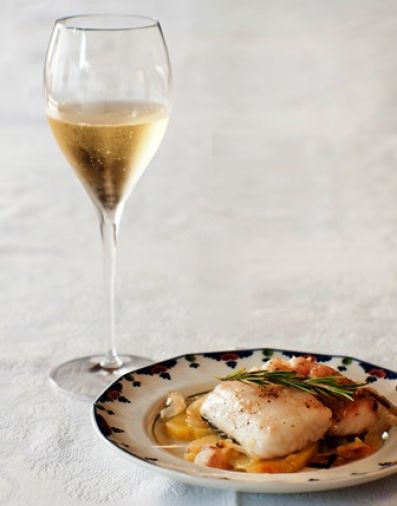 For Codorníu’s technical director, Bruno Colomer i Martí, the quality of a cava begins in the vineyard. While he recognizes that saying this is a bit of a platitude, he adds "but at the end of the day, we should not forget that the selection of the vineyard is what will determine the quality of the product." He goes on to point out that "focusing on the Vineyard with a capital "V" is what will largely and ultimately bring us success. Each vineyard gives us different characteristics depending on the variety, climate, soil and age of the vines. It is precisely this respect of origin which, in recent years, has translated into the appearance on the market of differentiated cavas with exquisite profiles. It is exciting to see how, through these great cavas, we can discover the distinct styles of the bodegas which produce them." Ton Mata, director at Cavas Recaredo, warmly welcomes the emergence of small enterprises within the cava industry, created by young wine growers "with important roots" who are "garnering prestige, by focusing on the terroir and producing first-rate products". He considers this dynamic to be "unstoppable" and "necessary" to further improve cava’s image. Mata is also of the opinion that it is "very necessary" for it to be clearly stated on cava labels whether the product is made from grapes from the property." Gramona's technical director, Jaume Gramona, believes that "the classification of cavas as "Reserva" and "Gran Reserva" was a big step forward", but adds that "now is the time to create a smaller area within the broad protected D.O.Cava, which would benefit the Gran Reserva cavas". According to Jaume Gramona, "it is clear that the trend in cava viticulture is for green and/or organic growing, seeking the ultimate expression of the terroir and our landscape, incorporating and uniting viticulture behind the concept of "granja" (farm estate)". He goes on to state that "cava must invest in its identity and its value, which lies in its land and its people. Nothing needs inventing, we must believe in ourselves and add value to what we already have, and this can only come from the collaboration of growers and cava producers."
For Codorníu’s technical director, Bruno Colomer i Martí, the quality of a cava begins in the vineyard. While he recognizes that saying this is a bit of a platitude, he adds "but at the end of the day, we should not forget that the selection of the vineyard is what will determine the quality of the product." He goes on to point out that "focusing on the Vineyard with a capital "V" is what will largely and ultimately bring us success. Each vineyard gives us different characteristics depending on the variety, climate, soil and age of the vines. It is precisely this respect of origin which, in recent years, has translated into the appearance on the market of differentiated cavas with exquisite profiles. It is exciting to see how, through these great cavas, we can discover the distinct styles of the bodegas which produce them." Ton Mata, director at Cavas Recaredo, warmly welcomes the emergence of small enterprises within the cava industry, created by young wine growers "with important roots" who are "garnering prestige, by focusing on the terroir and producing first-rate products". He considers this dynamic to be "unstoppable" and "necessary" to further improve cava’s image. Mata is also of the opinion that it is "very necessary" for it to be clearly stated on cava labels whether the product is made from grapes from the property." Gramona's technical director, Jaume Gramona, believes that "the classification of cavas as "Reserva" and "Gran Reserva" was a big step forward", but adds that "now is the time to create a smaller area within the broad protected D.O.Cava, which would benefit the Gran Reserva cavas". According to Jaume Gramona, "it is clear that the trend in cava viticulture is for green and/or organic growing, seeking the ultimate expression of the terroir and our landscape, incorporating and uniting viticulture behind the concept of "granja" (farm estate)". He goes on to state that "cava must invest in its identity and its value, which lies in its land and its people. Nothing needs inventing, we must believe in ourselves and add value to what we already have, and this can only come from the collaboration of growers and cava producers."
Bodegas Torres decided to enter the cava market with exclusively high end products. Its CEO, Miquel Torres Maczassek, states that "Bodegas Torres have always believed in building brands, as these represent the best guarantee for the consumer." In the case of cava, he adds, "there are quality-focused brands which have achieved a market position, generating value without necessarily having to compete on price." For wine grower, Joan Pascual, acting spokesperson for the Consejo Regulador and president of the Penedes wine growers union (Associació de Viticultors del Penedès), "quality and prestige" are values which are vital to the future of cava. He also sees the work in the vineyards as "a priority" and applauds initiatives such as the one which led to the creation of the Gran Reservas. Pascual has no doubt that "new generations of winemakers come increasingly prepared," but insists that "after years of our profession being discredited, the time has come for our work to be valued." The head of viticulture at Segura Viudas and René Barbier, Sebastià Raventos, says "raising the level of cava quality in the vineyards has always been my ambition." He reminds us that "obtaining good grapes involves costs" and that "the time is right" for the industry to get itself back on track and create a "great future" for itself. Raventos, who is the son, grandson and great-grandson of wine growers, also points out that "a good cava starts on the vine"
By its nature, cava has intrinsic quality, brought out by the talent of growers and winemakers who have been able to create an extensive range of products with different qualities and styles. They have also determined the international success of the important brands which strive to ensure that cava has the place it deserves in the pantheon of great wines. Tradition and the talent, work and enthusiasm of all the industry's players, form all the ingredients being leveraged by the cava industry to obtain bigger rewards and greater excellence. As Aristotle said, "we are what we repeatedly do. Excellence, therefore, is not an act but a habit". 